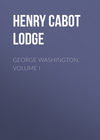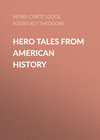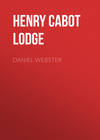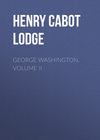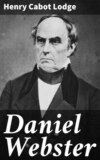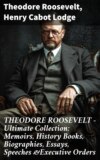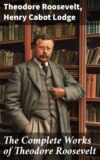Read the book: «George Washington, Volume I», page 5
He at once assumed command and betook himself to Winchester, a general without an army, but still able to check by his presence the existing panic, and ready to enter upon the trying, dreary, and fruitless work that lay before him. In April, 1757, he wrote: "I have been posted then, for more than twenty months past, upon our cold and barren frontiers, to perform, I think I may say, impossibilities; that is, to protect from the cruel incursions of a crafty, savage enemy a line of inhabitants, of more than three hundred and fifty miles in extent, with a force inadequate to the task." This terse statement covers all that can be said of the next three years. It was a long struggle against a savage foe in front, and narrowness, jealousy, and stupidity behind; apparently without any chance of effecting anything, or gaining any glory or reward. Troops were voted, but were raised with difficulty, and when raised were neglected and ill-treated by the wrangling governor and assembly, which caused much ill-suppressed wrath in the breast of the commander-in-chief, who labored day and night to bring about better discipline in camp, and who wrote long letters to Williamsburg recounting existing evils and praying for a new militia law.
The troops, in fact, were got out with vast difficulty even under the most stinging necessity, and were almost worthless when they came. Of one "noble captain" who refused to come, Washington wrote: "With coolness and moderation this great captain answered that his wife, family, and corn were all at stake; so were those of his soldiers; therefore it was impossible for him to come. Such is the example of the officers; such the behavior of the men; and upon such circumstances depends the safety of our country!" But while the soldiers were neglected, and the assembly faltered, and the militia disobeyed, the French and Indians kept at work on the long, exposed frontier. There panic reigned, farmhouses and villages went up in smoke, and the fields were reddened with slaughter at each fresh incursion. Gentlemen in Williamsburg bore these misfortunes with reasonable fortitude, but Washington raged against the abuses and the inaction, and vowed that nothing but the imminent danger prevented his resignation. "The supplicating tears of the women," he wrote, "and moving petitions of the men melt me into such deadly sorrow that I solemnly declare, if I know my own mind, I could offer myself a willing sacrifice to the butchering enemy, provided that would contribute to the people's ease." This is one of the rare flashes of personal feeling which disclose the real man, warm of heart and temper, full of human sympathy, and giving vent to hot indignation in words which still ring clear and strong across the century that has come and gone.
Serious troubles, moreover, were complicated by petty annoyances. A Maryland captain, at the head of thirty men, undertook to claim rank over the Virginian commander-in-chief because he had held a king's commission; and Washington was obliged to travel to Boston in order to have the miserable thing set right by Governor Shirley. This affair settled, he returned to take up again the old disheartening struggle, and his outspoken condemnation of Dinwiddie's foolish schemes and of the shortcomings of the government began to raise up backbiters and malcontents at Williamsburg. "My orders," he said, "are dark, doubtful, and uncertain; to-day approved, to-morrow condemned. Left to act and proceed at hazard, accountable for the consequences, and blamed without the benefit of defense." He determined nevertheless to bear with his trials until the arrival of Lord Loudon, the new commander-in-chief, from whom he expected vigor and improvement. Unfortunately he was destined to have only fresh disappointment from the new general, for Lord Loudon was merely one more incompetent man added to the existing confusion. He paid no heed to the South, matters continued to go badly in the North, and Virginia was left helpless. So Washington toiled on with much discouragement, and the disagreeable attacks upon him increased. That it should have been so is not surprising, for he wrote to the governor, who now held him in much disfavor, to the speaker, and indeed to every one, with a most galling plainness. He was only twenty-five, be it remembered, and his high temper was by no means under perfect control. He was anything but diplomatic at that period of his life, and was far from patient, using language with much sincerity and force, and indulging in a blunt irony of rather a ferocious kind. When he was accused finally of getting up reports of imaginary dangers, his temper gave way entirely. He wrote wrathfully to the governor for justice, and added in a letter to his friend, Captain Peachey: "As to Colonel C.'s gross and infamous reflections on my conduct last spring, it will be needless, I dare say, to observe further at this time than that the liberty which he has been pleased to allow himself in sporting with my character is little else than a comic entertainment, discovering at one view his passionate fondness for your friend, his inviolable love of truth, his unfathomable knowledge, and the masterly strokes of his wisdom in displaying it. You are heartily welcome to make use of any letter or letters which I may at any time have written to you; for although I keep no copies of epistles to my friends, nor can remember the contents of all of them, yet I am sensible that the narrations are just, and that truth and honesty will appear in my writings; of which, therefore, I shall not be ashamed, though criticism may censure my style."
Perhaps a little more patience would have produced better results, but it is pleasant to find one man, in that period of stupidity and incompetency, who was ready to free his mind in this refreshing way. The only wonder is that he was not driven from his command. That they insisted on keeping him there shows beyond everything that he had already impressed himself so strongly on Virginia that the authorities, although they smarted under his attacks, did not dare to meddle with him. Dinwiddie and the rest could foil him in obtaining a commission in the king's army, but they could not shake his hold upon the people.
In the winter of 1758 his health broke down completely. He was so ill that he thought that his constitution was seriously injured; and therefore withdrew to Mount Vernon, where he slowly recovered. Meantime a great man came at last to the head of affairs in England, and inspired by William Pitt, fleets and armies went forth to conquer. Reviving at the prospect, Washington offered his services to General Forbes, who had come to undertake the task which Braddock had failed to accomplish. Once more English troops appeared, and a large army was gathered. Then the old story began again, and Washington, whose proffered aid had been gladly received, chafed and worried all summer at the fresh spectacle of delay and stupidity which was presented to him. His advice was disregarded, and all the weary business of building new roads through the wilderness was once more undertaken. A detachment, sent forward contrary to his views, met with the fate of Braddock, and as the summer passed, and autumn changed to winter, it looked as if nothing would be gained in return for so much toil and preparation. But Pitt had conquered the Ohio in Canada, news arrived of the withdrawal of the French, the army pressed on, and, with Washington in the van, marched into the smoking ruins of Fort Duquesne, henceforth to be known to the world as Fort Pitt.
So closed the first period in Washington's public career. We have seen him pass through it in all its phases. It shows him as an adventurous pioneer, as a reckless frontier fighter, and as a soldier of great promise. He learned many things in this time, and was taught much in the hard school of adversity. In the effort to conquer Frenchmen and Indians he studied the art of war, and at the same time he learned to bear with and to overcome the dullness and inefficiency of the government he served. Thus he was forced to practise self-control in order to attain his ends, and to acquire skill in the management of men. There could have been no better training for the work he was to do in the after years, and the future showed how deeply he profited by it. Let us turn now, for a moment, to the softer and pleasanter side of life, and having seen what Washington was, and what he did as a fighting man, let us try to know him in the equally important and far more attractive domain of private and domestic life.
CHAPTER IV
LOVE AND MARRIAGE
Lewis Willis, of Fredericksburg, who was at school with Washington, used to speak of him as an unusually studious and industrious boy, but recalled one occasion when he distinguished himself and surprised his schoolmates by "romping with one of the largest girls."6 Half a century later, when the days of romping were long over and gone, a gentleman writing of a Mrs. Hartley, whom Washington much admired, said that the general always liked a fine woman.7 It is certain that from romping he passed rapidly to more serious forms of expressing regard, for by the time he was fourteen he had fallen deeply in love with Mary Bland of Westmoreland, whom he calls his "Lowland Beauty," and to whom he wrote various copies of verses, preserved amid the notes of surveys, in his diary for 1747-48. The old tradition identified the "Lowland Beauty" with Miss Lucy Grymes, perhaps correctly, and there are drafts of letters addressed to "Dear Sally," which suggest that the mistake in identification might have arisen from the fact that there were several ladies who answered to that description. In the following sentence from the draft of a letter to a masculine sympathizer, also preserved in the tell-tale diary of 1748, there is certainly an indication that the constancy of the lover was not perfect. "Dear Friend Robin," he wrote: "My place of residence at present is at his Lordship's, where I might, were my heart disengaged, pass my time very pleasantly, as there is a very agreeable young lady in the same house, Colonel George Fairfax's wife's sister. But that only adds fuel to the fire, as being often and unavoidably in company with her revives my former passion for your Lowland Beauty; whereas were I to live more retired from young women, I might in some measure alleviate my sorrow by burying that chaste and troublesome passion in oblivion; I am very well assured that this will be the only antidote or remedy." Our gloomy young gentleman, however, did not take to solitude to cure the pangs of despised love, but preceded to calm his spirits by the society of this same sister-in-law of George Fairfax, Miss Mary Cary. One "Lowland Beauty," Lucy Grymes, married Henry Lee, and became the mother of "Legion Harry," a favorite officer and friend of Washington in the Revolution, and the grandmother of Robert E. Lee, the great soldier of the Southern Confederacy. The affair with Miss Cary went on apparently for some years, fitfully pursued in the intervals of war and Indian fighting, and interrupted also by matters of a more tender nature. The first diversion occurred about 1752, when we find Washington writing to William Fauntleroy, at Richmond, that he proposed to come to his house to see his sister, Miss Betsy, and that he hoped for a revocation of her former cruel sentence.8 Miss Betsy, however, seems to have been obdurate, and we hear no more of love affairs until much later, and then in connection with matters of a graver sort.
When Captain Dagworthy, commanding thirty men in the Maryland service, undertook in virtue of a king's commission to outrank the commander-in-chief of the Virginian forces, Washington made up his mind that he would have this question at least finally and properly settled. So, as has been said, he went to Boston, saw Governor Shirley, and had the dispute determined in his own favor. He made the journey on horseback, and had with him two of his aides and two servants. An old letter, luckily preserved, tells us how he looked, for it contains orders to his London agents for various articles, sent for perhaps in anticipation of this very expedition. In Braddock's campaign the young surveyor and frontier soldier had been thrown among a party of dashing, handsomely equipped officers fresh from London, and their appearance had engaged his careful attention. Washington was a thoroughly simple man in all ways, but he was also a man of taste and a lover of military discipline. He had a keen sense of appropriateness, a valuable faculty which stood him in good stead in grave as well as trivial matters all through his career, and which in his youth came out most strongly in the matter of manners and personal appearance. He was a handsome man, and liked to be well dressed and to have everything about himself or his servants of the best. Yet he was not a mere imitator of fashions or devoted to fine clothes. The American leggins and fringed hunting-shirt had a strong hold on his affections, and he introduced them into Forbes's army, and again into the army of the Revolution, as the best uniform for the backwoods fighters. But he learned with Braddock that the dress of parade has as real military value as that of service, and when he traveled northward to settle about Captain Dagworthy, he felt justly that he now was going on parade for the first time as the representative of his troops and his colony. Therefore with excellent sense he dressed as befitted the occasion, and at the same time gratified his own taste.
Thanks to these precautions, the little cavalcade that left Virginia on February 4, 1756, must have looked brilliant enough as they rode away through the dark woods. First came the colonel, mounted of course on the finest of animals, for he loved and understood horses from the time when he rode bareback in the pasture to those later days when he acted as judge at a horse-race and saw his own pet colt "Magnolia" beaten. In this expedition he wore, of course, his uniform of buff and blue, with a white and scarlet cloak over his shoulders, and a sword-knot of red and gold. His "horse furniture" was of the best London make, trimmed with "livery lace," and the Washington arms were engraved upon the housings. Close by his side rode his two aides, likewise in buff and blue, and behind came his servants, dressed in the Washington colors of white and scarlet and wearing hats laced with silver. Thus accoutred, they all rode on together to the North.
The colonel's fame had gone before him, for the hero of Braddock's stricken field and the commander of the Virginian forces was known by reputation throughout the colonies. Every door flew open to him as he passed, and every one was delighted to welcome the young soldier. He was dined and wined and fêted in Philadelphia, and again in New York, where he fell in love at apparently short notice with the heiress Mary Philipse, the sister-in-law of his friend Beverly Robinson. Tearing himself away from these attractions he pushed on to Boston, then the most important city on the continent, and the head-quarters of Shirley, the commander-in-chief. The little New England capital had at that time a society which, rich for those days, was relieved from its Puritan sombreness by the gayety and life brought in by the royal officers. Here Washington lingered ten days, talking war and politics with the governor, visiting in state the "great and general court," dancing every night at some ball, dining with and being fêted by the magnates of the town. His business done, he returned to New York, tarried there awhile for the sake of the fair dame, but came to no conclusions, and then, like the soldier in the song, he gave his bridle-rein a shake and rode away again to the South, and to the harassed and ravaged frontier of Virginia.
How much this little interlude, pushed into a corner as it has been by the dignity of history,—how much it tells of the real man! How the statuesque myth and the priggish myth and the dull and solemn myth melt away before it! Wise and strong, a bearer of heavy responsibility beyond his years, daring in fight and sober in judgment, we have here the other and the more human side of Washington. One loves to picture that gallant, generous, youthful figure, brilliant in color and manly in form, riding gayly on from one little colonial town to another, feasting, dancing, courting, and making merry. For him the myrtle and ivy were entwined with the laurel, and fame was sweetened by youth. He was righteously ready to draw from life all the good things which fate and fortune then smiling upon him could offer, and he took his pleasure frankly, with an honest heart.
We know that he succeeded in his mission and put the captain of thirty men in his proper place, but no one now can tell how deeply he was affected by the charms of Miss Philipse. The only certain fact is that he was able not long after to console himself very effectually. Riding away from Mount Vernon once more, in the spring of 1758, this time to Williamsburg with dispatches, he stopped at William's Ferry to dine with his friend Major Chamberlayne, and there he met Martha Dandridge, the widow of Daniel Parke Custis. She was young, pretty, intelligent, and an heiress, and her society seemed to attract the young soldier. The afternoon wore away, the horses came to the door at the appointed time, and after being walked back and forth for some hours were returned to the stable. The sun went down, and still the colonel lingered. The next morning he rode away with his dispatches, but on his return he paused at the White House, the home of Mrs. Custis, and then and there plighted his troth with the charming widow. The wooing was brief and decisive, and the successful lover departed for the camp, to feel more keenly than ever the delays of the British officers and the shortcomings of the colonial government. As soon as Fort Duquesne had fallen he hurried home, resigned his commission in the last week of December, and was married on January 6, 1759. It was a brilliant wedding party which assembled on that winter day in the little church near the White House. There were gathered Francis Fauquier, the gay, free-thinking, high-living governor, gorgeous in scarlet and gold; British officers, redcoated and gold-laced, and all the neighboring gentry in the handsomest clothes that London credit could furnish. The bride was attired in silk and satin, laces and brocade, with pearls on her neck and in her ears; while the bridegroom appeared in blue and silver trimmed with scarlet, and with gold buckles at his knees and on his shoes. After the ceremony the bride was taken home in a coach and six, her husband riding beside her, mounted on a splendid horse and followed by all the gentlemen of the party.
The sunshine and glitter of the wedding-day must have appeared to Washington deeply appropriate, for he certainly seemed to have all that heart of man could desire. Just twenty-seven, in the first flush of young manhood, keen of sense and yet wise in experience, life must have looked very fair and smiling. He had left the army with a well-earned fame, and had come home to take the wife of his choice and enjoy the good-will and respect of all men. While away on his last campaign he had been elected a member of the House of Burgesses, and when he took his seat on removing to Williamsburg, three months after his marriage, Mr. Robinson, the speaker, thanked him publicly in eloquent words for his services to the country. Washington rose to reply, but he was so utterly unable to talk about himself that he stood before the House stammering and blushing, until the speaker said, "Sit down, Mr. Washington; your modesty equals your valor, and that surpasses the power of any language I possess." It is an old story, and as graceful as it is old, but it was all very grateful to Washington, especially as the words of the speaker bodied forth the feelings of Virginia. Such an atmosphere, filled with deserved respect and praise, was pleasant to begin with, and then he had everything else too.
He not only continued to sit in the House year after year and help to rule Virginia, but he served on the church vestry, and so held in his hands the reins of local government. He had married a charming woman, simple, straightforward, and sympathetic, free from gossip or pretense, and as capable in practical matters as he was himself. By right of birth a member of the Virginian aristocracy, he had widened and strengthened his connections through his wife. A man of handsome property by the death of Lawrence Washington's daughter, he had become by his marriage one of the richest men of the country. Acknowledged to be the first soldier on the continent, respected and trusted in public, successful and happy in private life, he had attained before he was thirty to all that Virginia could give of wealth, prosperity, and honor, a fact of which he was well aware, for there never breathed a man more wisely contented than George Washington at this period.
He made his home at Mount Vernon, adding many acres to the estate, and giving to it his best attention. It is needless to say that he was successful, for that was the ease with everything he undertook. He loved country life, and he was the best and most prosperous planter in Virginia, which was really a more difficult achievement than the mere statement implies. Genuinely profitable farming in Virginia was not common, for the general system was a bad one. A single great staple, easily produced by the reckless exhaustion of land, and varying widely in the annual value of crops, bred improvidence and speculation. Everything was bought upon long credits, given by the London merchants, and this, too, contributed largely to carelessness and waste. The chronic state of a planter in a business way was one of debt, and the lack of capital made his conduct of affairs extravagant and loose. With all his care and method Washington himself was often pinched for ready money, and it was only by his thoroughness and foresight that he prospered and made money while so many of his neighbors struggled with debt and lived on in easy luxury, not knowing what the morrow might bring forth.
A far more serious trouble than bad business methods was one which was little heeded at the moment, but which really lay at the foundation of the whole system of society and business. This was the character of the labor by which the plantations were worked. Slave labor is well known now to be the most expensive and the worst form of labor that can be employed. In the middle of the eighteenth century, however, its evils were not appreciated, either from an economical or a moral point of view. This is not the place to discuss the subject of African slavery in America. But it is important to know Washington's opinions in regard to an institution which was destined to have such a powerful influence upon the country, and it seems most appropriate to consider those opinions at the moment when slaves became a practical factor in his life as a Virginian planter.
Washington accepted the system as he found it, as most men accept the social arrangements to which they are born. He grew up in a world where slavery had always existed, and where its rightfulness had never been questioned. Being on the frontier, occupied with surveying and with war, he never had occasion to really consider the matter at all until he found himself at the head of large estates, with his own prosperity dependent on the labor of slaves. The first practical question, therefore, was how to employ this labor to the best advantage. A man of his clear perceptions soon discovered the defects of the system, and he gave great attention to feeding and clothing his slaves, and to their general management. Parkinson9 says in a general way that Washington treated his slaves harshly, spoke to them sharply, and maintained a military discipline, to which he attributed the General's rare success as a planter. There can be no doubt of the success, and the military discipline is probably true, but the statement as to harshness is unsupported by any other authority. Indeed, Parkinson even contradicts it himself, for he says elsewhere that Washington never bought or sold a slave, a proof of the highest and most intelligent humanity; and he adds in his final sketch of the General's character, that he "was incapable of wrong-doing, but did to all men as he would they should do to him. Therefore it is not to be supposed that he would injure the negro." This agrees with what we learn from all other sources. Humane by nature, he conceived a great interest and pity for these helpless beings, and treated them with kindness and forethought. In a word, he was a wise and good master, as well as a successful one, and the condition of his slaves was as happy, and their labor as profitable, as was possible to such a system.
So the years rolled by; the war came and then the making of the government, and Washington's thoughts were turned more and more, as was the case with all the men of his time in that era of change and of new ideas, to the consideration of human slavery in its moral, political, and social aspects. To trace the course of his opinions in detail is needless. It is sufficient to summarize them, for the results of his reflection and observation are more important than the processes by which they were reached. Washington became convinced that the whole system was thoroughly bad, as well as utterly repugnant to the ideas upon which the Revolution was fought and the government of the United States founded. With a prescience wonderful for those days and on that subject, he saw that slavery meant the up-growth in the United States of two systems so radically hostile, both socially and economically, that they could lead only to a struggle for political supremacy, which in its course he feared would imperil the Union. For this reason he deprecated the introduction of the slavery question into the debates of the first Congress, because he realized its character, and he did not believe that the Union or the government at that early day could bear the strain which in this way would be produced. At the same time he felt that a right solution must be found or inconceivable evils would ensue. The inherent and everlasting wrong of the system made its continuance, to his mind, impossible. While it existed, he believed that the laws which surrounded it should be maintained, because he thought that to violate these only added one wrong to another. He also doubted, as will be seen in a later chapter, where his conversation with John Bernard is quoted, whether the negroes could be immediately emancipated with safety either to themselves or to the whites, in their actual condition of ignorance, illiteracy, and helplessness. The plan which he favored, and which, it would seem, was his hope and reliance, was first the checking of importation, followed by a gradual emancipation, with proper compensation to the owners and suitable preparation and education for the slaves. He told the clergymen Asbury and Coke, when they visited him for that purpose, that he was in favor of emancipation, and was ready to write a letter to the assembly to that effect.10 He wished fervently that such a spirit might take possession of the people of the country, but he wrote to Lafayette that he despaired of seeing it. When he died he did all that lay within his power to impress his views upon his countrymen by directing that all his slaves should be set free on the death of his wife. His precepts and his example in this grave matter went unheeded for many years by the generations which came after him. But now that slavery is dead, to the joy of all men, it is well to remember that on this terrible question Washington's opinions were those of a humane man, impatient of wrong, and of a noble and far-seeing statesman, watchful of the evils that threatened his country.11
After this digression let us return to the Virginian farmer, whose mind was not disturbed as yet by thoughts of the destiny of the United States, or considerations of the rights of man, but who was much exercised by the task of making an honest income out of his estates. To do this he grappled with details as firmly as he did with the general system under which all plantations in that day were carried on. He understood every branch of farming; he was on the alert for every improvement; he rose early, worked steadily, gave to everything his personal supervision, kept his own accounts with wonderful exactness, and naturally enough his brands of flour went unquestioned everywhere, his credit was high, and he made money—so far as it was possible under existing conditions. Like Shakespeare, as Bishop Blougram has it, he
"Saved money, spent it, owned the worth of things."
He had no fine and senseless disregard for money or the good things of this world, but on the contrary saw in them not the value attached to them by vulgar minds, but their true worth. He was a solid, square, evenly-balanced man in those days, believing that whatever he did was worth doing well. So he farmed, as he fought and governed, better than anybody else.
While thus looking after his own estates at home, he went further afield in search of investments, keeping a shrewd eye on the western lands, and buying wisely and judiciously whenever he had the opportunity. He also constituted himself now, as in a later time, the champion of the soldiers, for whom he had the truest sympathy and affection, and a large part of the correspondence of this period is devoted to their claims for the lands granted them by the assembly. He distinguished carefully among them, however, those who were undeserving, and to the major of the regiment, who had been excluded from the public thanks on account of cowardice at the Great Meadows, he wrote as follows: "Your impertinent letter was delivered to me yesterday. As I am not accustomed to receive such from any man, nor would have taken the same language from you personally without letting you feel some marks of my resentment, I would advise you to be cautious in writing me a second of the same tenor. But for your stupidity and sottishness you might have known, by attending to the public gazette, that you had your full quantity of ten thousand acres of land allowed you. But suppose you had really fallen short, do you think your superlative merit entitles you to greater indulgence than others?… All my concern is that I ever engaged in behalf of so ungrateful a fellow as you are." The writer of this letter, be it said in passing, was the man whom Mr. Weems and others tell us was knocked down before his soldiers, and then apologized to his assailant. It may be suspected that it was well for the recipient of this letter that he did not have a personal interview with its author, and it may be doubted if he ever sought one subsequently. Just, generous, and magnanimous to an extraordinary degree, Washington had a dangerous temper, held well under control, but blazing out now and again against injustice, insolence, or oppression. He was a peaceful man, leading a peaceful life, but the fighting spirit only slumbered, and it would break out at wrong of any sort, in a way which was extremely unpleasant and threatening to those who aroused it.
